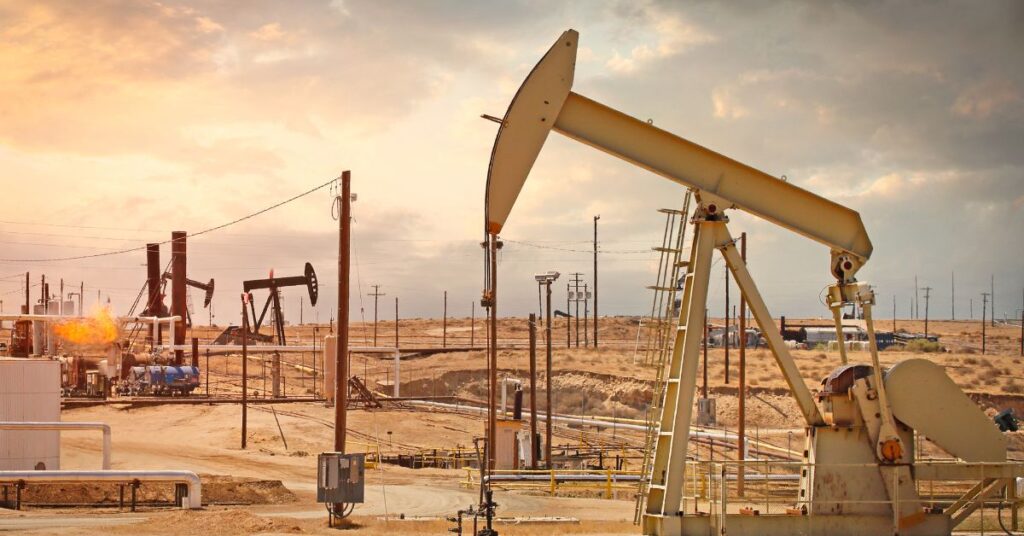The Dangers of Oil Field Explosions and Fires

Most oil field workers understand that their jobs are risky. Numerous hazards come into play each day workers arrive at the location. Still, employees never expect to become injured in explosions and fires.
Oil companies have an obligation to protect workers from accidents. When severe incidents occur, injured workers have the right to seek compensation. Keep in mind the following dangers of oil field explosions and fires.
Why Do Oil Field Explosions Happen?
The oil industry is filled with equipment, liquids, and natural gas that are highly explosive. Rigs, pulling/workover units, pumpjacks, gathering stations, tank batteries, storage facilities and other locations contain large amounts of oil, gas, and other combustible materials that can produce devastating explosions when put under pressure, exposed to flames, or even static electricity.
When all equipment works as it should, the risk of explosions and fires is low. But employer negligence, equipment malfunctions, and lack of safety protocols can lead to oil field accidents.
The liable party in an oil field accident may be the oil company, a third party, or a combination. Common causes of oil rig explosions include:
- Human error: When workers operate machinery incorrectly due to fatigue, inattention, or improper training, they risk creating sparks that cause fires and explosions.
- Equipment failure: Oil companies are responsible for maintaining their equipment to the highest standards. Lack of maintenance can lead equipment to break down prematurely and cause accidents. Equipment manufacturers are often responsible for accidents that occur due to malfunctions.
- Oil spills: Equipment breakdowns can lead to oil and gas spills, and a single spark in the vicinity can create a disastrous explosion.
- Oil rig blowouts: Blowouts occur when workers strike highly pressurized oil and gas pockets, causing an uncontrollable pressure release. While modern oil rigs have failsafe measures to prevent blowouts, these measures sometimes do not work, or oil rig companies fail to maintain them.
- Unsafe work practices: When companies force employees to work dangerous hours without breaks, fatigue can set in, causing employees to make dangerous mistakes.
- Poor weather: Oil rig workers must adjust to poor weather conditions on the rig. Attempting to work through conditions with low visibility and high winds can lead workers to make mistakes. Exposing machinery to lightning strikes can spark combustible materials, causing fires.
The important thing to note is that under normal circumstances, oil field explosions and fires should not happen.
Dangerous Consequences of Oil Rig Explosions
Oil field explosions can produce serious injuries for workers or bystanders in the vicinity. In the worst cases, these incidents can lead to injuries like:
- Third-degree burns
- Soft tissue damage
- Traumatic brain injuries
- Spinal cord injuries
- Brain damage
- broken bones
- amputations
Victims of devastating explosions and fires often develop post-traumatic stress disorder. They may feel uncomfortable or even unable to return to work on the oil field, even after their physical injuries heal.
Contact an Experienced Attorney After an Oil Field Accident
Seeking compensation is an important step in recovering from your oil field accident. If you experienced an injury while fulfilling the duties of your job, you likely have a right to seek workers’ compensation from your employer.
Some states, like Texas, do not require private companies to offer workers’ compensation insurance. If your employer does not carry this type of insurance, you may be able to recover damages through a personal injury lawsuit instead.
Work with an attorney who has experience representing victims of oil field explosions and fires. Your attorney can take care of the compensation process while you focus on your recovery.
When you need assistance after an oil field explosion, contact Fadduol, Cluff, Hardy & Conaway, P.C. today at 432-335-0399 for legal guidance.
